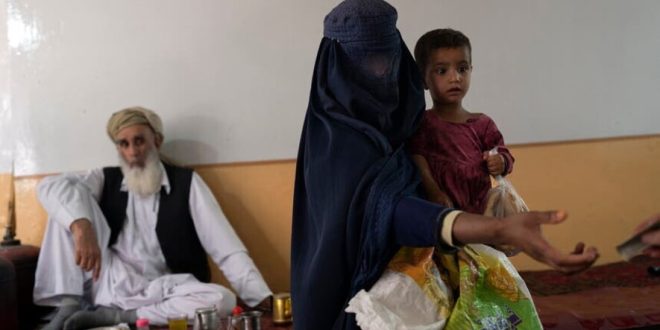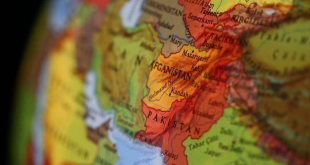AT News
KABUL: Taliban’s supreme leader has stated that his government has taken necessary actions to improve the lives of women in Afghanistan, a country where women face bans on public life, employment, and limited access to education.
Hibatullah Akhundzada’s statement was released ahead of the upcoming Eid al-Adha holiday, which will be observed in Afghanistan and other Islamic nations later this week.
In his Eid message, Akhundzada claimed that under the rule of the Islamic Emirate, concrete measures have been taken to alleviate various traditional forms of oppression against women, including forced marriages. He added that women’s Shariah rights have been protected and steps have been implemented to enhance their lives, ensuring comfort and prosperity based on Islamic principles.
In recent times, Akhundzada has shown a more assertive role in directing domestic policies, including banning girls’ education beyond the sixth grade and restricting Afghan women from public life and employment, particularly with non-governmental organizations and the United Nations.
The message was disseminated in five languages: Arabic, Dari, English, Pashto, and Urdu. Akhundzada asserted that negative aspects of the previous 20-year occupation, such as the hijab and “misguidance,” will soon come to an end.
“The status of women as free and dignified human beings has been restored, and all institutions are mandated to support women in securing marriage, inheritance, and other rights,” he further stated.
Despite initial promises of a more moderate rule compared to their previous tenure in the 1990s, the Taliban have implemented strict measures since seizing control of Afghanistan in August 2021 as NATO forces were withdrawing. Women have been barred from public spaces, such as parks and gyms, and media freedoms have been suppressed. These actions have generated strong international criticism, deepening the country’s isolation amidst a collapsed economy and worsening humanitarian crisis.
Akhundzada reiterated his call for other countries to refrain from interfering in Afghanistan’s internal affairs. He expressed the Taliban government’s desire to establish positive political and economic relations with the world, particularly with Islamic countries, and claimed that they have fulfilled their responsibilities in this regard.
His message also condemned Israel’s treatment of Palestinians and urged the people and government of Sudan to put aside their differences and work together towards unity and brotherhood.
 Afghanistan Times Latest News and Analysis from Afghanistan and the Region
Afghanistan Times Latest News and Analysis from Afghanistan and the Region




